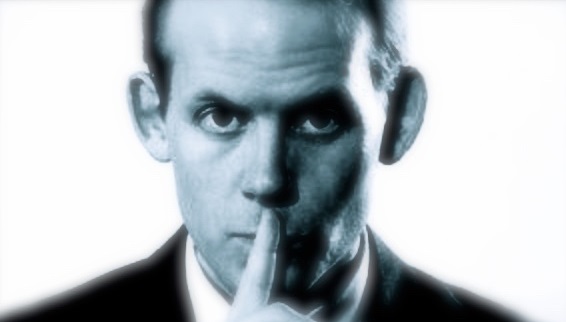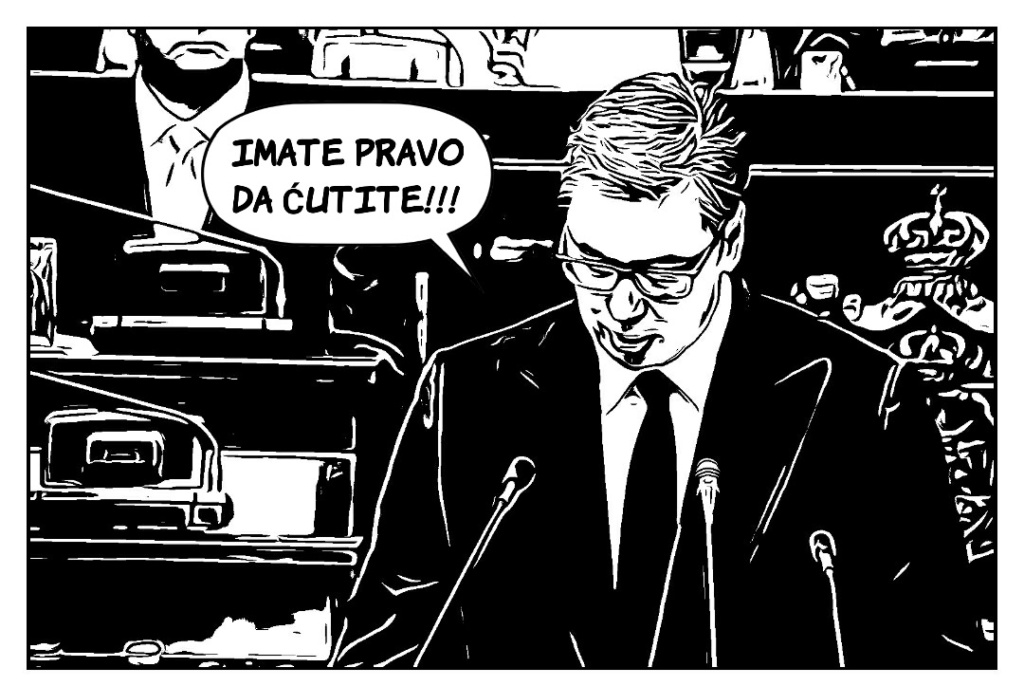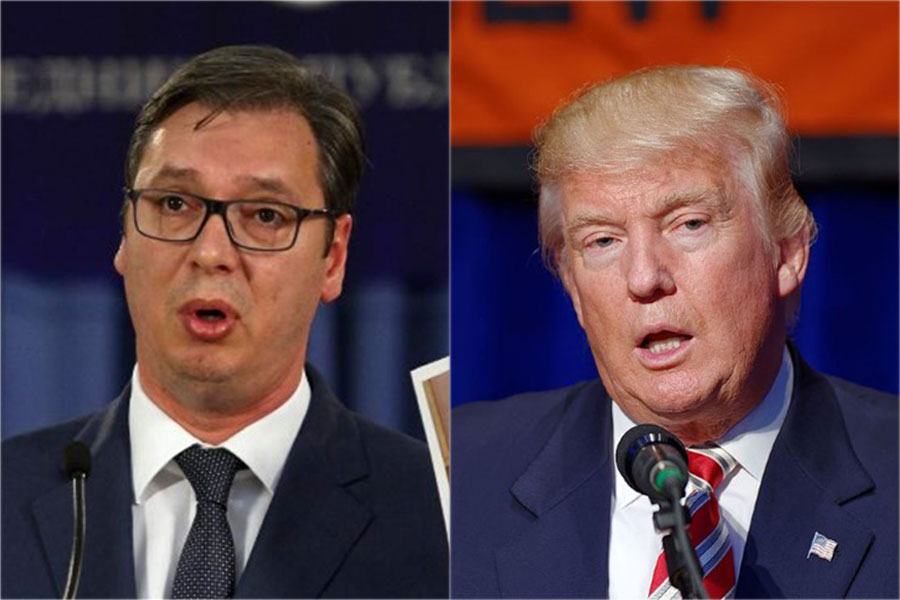 The Anti-Corruption Council: The media in Serbia are ruled by the iron triangle – a hidden ownership structure, a non-transparent funding and a connection to politics and business
The Anti-Corruption Council: The media in Serbia are ruled by the iron triangle – a hidden ownership structure, a non-transparent funding and a connection to politics and business
In the yesterday published report on the ownership structure and control of the media in Serbia the Anti-Corruption Council indicated that for the last three years the media in Serbia had not been realizing their role and that the “government was controlling the media instead of having the media controlling the government”.
The Council stated that for the past two and a half years there had been no visible readiness of political parties to renounce their influence to the ownership structure, i.e. editorial policy of the media, whether this was formal or informal influence.
Due to general impression of the public and international institutions that powerful media control is still present in Serbia, the Council has made a report on over 160 pages analyzing five systemic problems that paralyze the media in Serbia. These are the following:
- a non-transparency of media ownership,
- a non-transparency of funding,
- an economic influence through the budget,
- tax reliefs and other indirect forms of funding using public money,
- the media privatization problems and uncertain status of public services,
- censorship and self-censorship and
- tabloidization.
Who’s Behind Media Owners
According to the Councils findings, over one half of the analyzed media companies have a non-transparent ownership often leading to off-shore countries such as Cyprus and the British Virgin Islands, where it is not possible to track down the legal owners.
This is how national television stations B92 and Prva, which have been believed to have the same owner for years, are still an example of non-transparent ownership structure leading to Cyprus through a series of national and foreign companies via Greece and Bulgaria.
We have a similar situation with the newest television station N1, which has been broadcasting the programme since November last year and is closely connected to cable television operator SBB, which currently holds over 50% of the market. A company from Luxembourg, the owner of which is unknown, is behind this television station, but their main financial investor is United group from the Netherlands. Majority ownership in this group currently belongs to the American company KKR Group.
The television station of the Minister of Defence Bratislav Gašić was receiving money from the Kruševac’s budget. Having in mind that accounts of TV Plus Kruševac have been blocked since 2011, this television has been operating without interference for years via ADD Produkcija, the company owned by Mr.Gašić’s wife.
The Council states that it is impermissible to have the oldest daily paper in the country, Politika, still 50 per cent owned by the Russian company OOO East Media Group, the owner of which is unknown. Although in 2012 Aleksandar Vučić, as Vice-President of the Government, stated that the real owner of Politika, but also of Večernje Novosti and Dnevnik, was the company Farmakom owned by the businessman Miroslav Bogićević, these statements have not been confirmed until present day.
“It is impermissible that the state authorities are unable to present results of the investigation to the public after over two and a half years since the Vice-President of the Government at that time stated a serious qualification on the media concentration of ownership and control over three relevant printed media”, concluded the Council.
The daily paper Večernje Novosti has two Austrian companies and one Cypriot company in its ownership structure. It is still unclear if and how Milan Beko is the real owner of this paper. Having in mind that privatization of this paper is on the list of questionable privatizations and that the Council filed several criminal reports in this case, the Council notes that it is still unclear what was determined during the course of investigation, since the team of the Ministry of Interior dealing with the questionable privatizations was disbanded in the end of 2014.
According to the Councils findings, Happy Television, although formally having a transparent ownership, also falls into the group of media with vague ownership structure, since the Belgrade businessman Predrag Ranković Peconi has been believed to be behind this television station.
Council also pointed out the E-novine, the portal owned by the Director of E-novine doo and Editor-in-Chief Petar Luković, who is closely related to the businessman Stanko Subotić, since, among other things, headquarters of the desk is located at Terazije, in an apartment owned by Subotić.
B92 and Prva: Still an example of a non-transparent ownership structure leading to Cyprus through a series of national and foreign companies via Greece and Bulgaria.N1: A company from Luxembourg, the owner of which is unknown, stands behind this television station.
Politika: It is impermissible to have the oldest daily paper in the country still 50 per cent owned by the Russian company OOO East Media Group, the owner of which is unknown.
Večernje Novosti: It is still unclear whether Milan Beko is the real owner of this paper. There are two Austrian companies and one Cypriot company in the ownership structure.
Happy Television: Formally, it has a transparent ownership, but this is still unclear since Predrag Ranković Peconi has been believed to be behind this television station.
E-Novine: Headquarters of the desk is at Terazije, in an apartment belonging to Stanko Subotić Cane.
Politicians in the Media
Bratislav Gašić, the Minister of Defence and a high ranking official of SNS (Serbian Progressive Party), owns Televizija Kruševac through his company Saco doo. At the same time his son Vladan owns the television station Zona plus from Niš and is one of the owners of Sportska TV from Kruševac.
Another official of SNS who had an indirect ownership in the media is the Minister of Interior Nebojša Stefanović, in the closed paper Pravda, where his brother had 50% share, and his wife was one of the owners through an intermediary company.
Over one half of the analyzed media companies have a non-transparent ownership often leading to off-shore countries such as Cyprus and the British Virgin Islands, where it is not possible to track down the legal owners.
The governing party officials are also present on cable television station Kopernikus, where the Member of Parliament and the official of SNS Vladimir Đukanović has its own show “Dobro jutro sa Đukom” (Good Morning with Djuka). Tatjana Vidojković, a member of the City Committee of SNS and Čukarica Municipal Council in Belgrade, was the Editor-in-Chief of the television station Svet plus info, the third TV channel of Kopernikus.
In its report the Council has noted that another three local media are under strict party control of SNS: Radio Požarevac, PE Apolo Novi Sad, PE Radio-Televizija Kruševac.
Members of the Socialist Party of Serbia (SPS) also have ownership in certain media. The regional TV Most is owned by the parents of Dušan Bajatović, until recently the Vice-President of SPS and Director of Srbijagas.
Radio S is also in the group of media with owners from politics, since AS medija company is owned by the mother of SPS official Zoran Anđelković.
SPS official Ljubiša Stepanović is currently the Acting Director of public Radio Subotica.
The similar situation is in Jagodina, where TV Palma plus is owned by Dalibor Marković, the son of Dragan Marković Palma, the party President of Jedinstvena Srbija (United Serbia).
According to the Council’s findings, TV Panonija is linked to Ujedinjeni Regioni Srbije, (United Regions of Serbia), since the Director of this television station, Nadica Momirov, official of this party, was the State Secretary at the Ministry of Culture.
Who Gets Tax Reliefs?
“One of the ways for politicians to control the media, i.e. publishers of public media and broadcasters of television and radio programme , is the privileged treatment in collection, i.e. delay of collection of tax debt”, states the Council.
The media are also on the largest tax debtors list. The company Borba ad is in the fourth place of the largest tax debtors, Pink international company is ranked as the 23rd e, Kompanija Novosti ad is the 34th, Radio-televizija Srbije is the 76th, and Štamparija Borba is ranked as the 156th.
Council managed to obtain information from the Tax Administration that the tax debt of the media amounts over 3.2 billion dinars, or about 26 million Euros.
Council considers that media owners, who are at the same time among large tax debtors and the richest businessmen, have prolonged settlement of tax obligations for years without basis thanks to the firm and unbreakable ties with politicians and the state.
The Council believes that media owners, who are at the same time among large tax debtors and the richest businessmen, have prolonged settlement of tax obligations for years without basis thanks to the firm and unbreakable ties with politicians and the state.
As the best example, the Council stated TV Pink¸ which is said to put the resources of its television station at the disposal of the most dominant party.
The state made an agreement with this television station on deferred payment of the debt in the amount of 705,011,012.23 dinars from February 2013, which enabled repayment of the debt in 15 monthly installments with 9 months grace period.
The new Minister of Economy then in October 2014 signed a new agreement envisaging repayment of the debt in 12 monthly installments, with the first installment to be paid in September 2015.
The largest part of the debt of Pink television station is the unpaid VAT, income tax, tax on salaries and the Pension and Disability Insurance. The Council asked why the first agreement was not terminated having in mind that Pink failed to pay installments and why the new agreement was signed when this television station failed to honor the previous one.
Due to circumstances under which this television station got the possibility to repay the debt, the Council feels “that the current way of regulation of procedure for approval of tax debt restructuring for large tax debtors, such as Pink international company doo, leaves a broad and potentially corruptive discretionary authority to the Minister of Finance”.
Media Control through Budgetary Funding
In its report the Council has distinguished budgetary funding through subsidies, direct contracting, competitions and public procurement as models that locally led to media discrimination and gave politicians the “opportunity to purchase political influence using the money of local self-governments”.
Studio B, Belgrade television station owned by the city, was stated among the analyzed examples, because due to budgetary funding they provide favorable treatment to the city authorities.
“Before the city elections in 2014, DS (Democratic Party) was maximally dominant on TV Studio B, while after elections SNS took their place”, says the report of the Council.
The Council has also stated the case of radio station Stari grad from Kragujevac, owned by Milan Urošević, the President of the Assembly of the city of Kragujevac from the lines of SPO (Serbian Renewal Movement), who had been receiving money for years from the city of Kragujevac based on the decisions on business and technical cooperation signed by then Mayor Veroljub Stevanović.
The television station of the Minster of Defence Bratislav Gašić was similarly receiving money from the budget of Kruševac. Having in mind that the accounts of TV Plus Kruševac have been blocked since 2011, this television station operates without interference through the company ADD produkcija owned by Gašić’s wife.
“The company ADD produkcija realized most of the money for providing services to the city administration of the city of Kruševac, budgetary institutions in this city and surrounding municipalities, during the period when Mayor of Kruševac was precisely Bratislav Gašić”, says the report of the Council.
The Council pointed to the similar preferential method with Narodne novine, TV Skaj plus from Niš, Surdulička radio-televizija, TV Best and RTV F from Zaječar.
* The author of this text was working in the team that prepared the report of the Anti-Corruption Council



 Snaga dobre priče: O mitologiji medija
Snaga dobre priče: O mitologiji medija Vučić i Tramp: Netrpeljivost prema medijima i podrugljivo odbacivanje drugačijeg mišljenja
Vučić i Tramp: Netrpeljivost prema medijima i podrugljivo odbacivanje drugačijeg mišljenja Silovanje ili cenzura: Na šta to smrdi Pepe le Tvor?
Silovanje ili cenzura: Na šta to smrdi Pepe le Tvor?
Ostavljanje komentara je privremeno obustavljeno iz tehničkih razloga. Hvala na razumevanju.